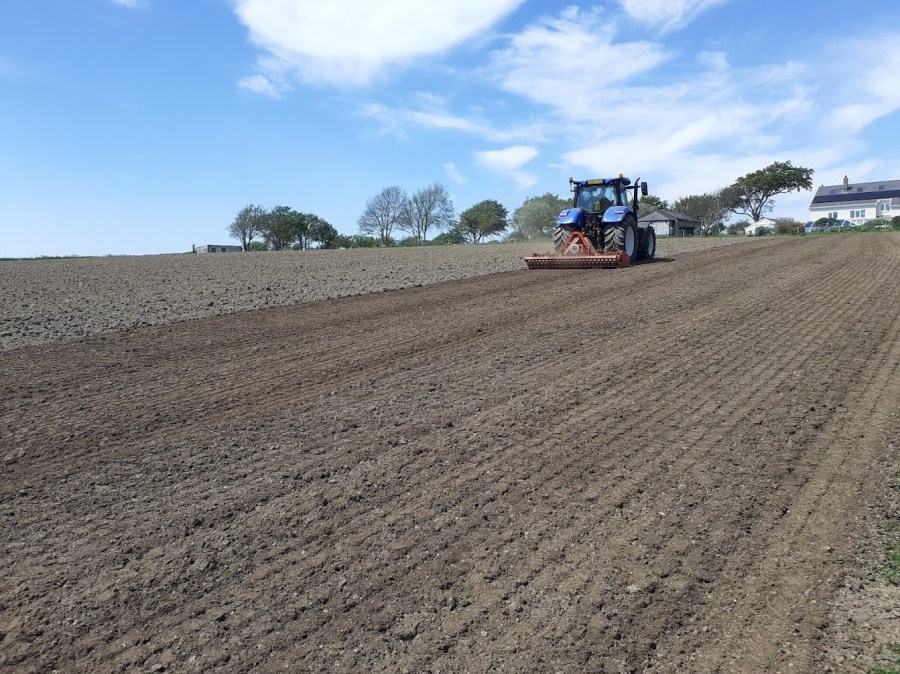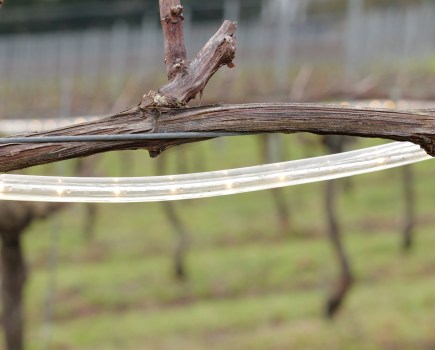You’re going to plant a vineyard! You’ve assessed your land and ordered your vines, what next? Asks Will Mower, Vine-Works.
Preparing your soil prior to planting will greatly improve your vines’ performance and promote healthy, vigorous growth. As part of your initial site assessment, you should have completed some preliminary soil analysis to gauge the land’s suitability for viticulture. The goal of soil preparation is to replenish vital minerals and nutrients as well as break up and loosen any compacted soil. A well-prepared field controls weeds, recycles plant nutrients and provides a soft soil mass for planting.
The soil analysis will reveal any nutrient deficiencies so that corrective actions can be taken under the guidance of a licensed agronomist. Technology, (such as GPS and GIS software) offers us the opportunity to examine soil characteristics and create detailed reports of the field topography and soil structure. Extensive data regarding active calcium, (CaCO3) and organic matter content, macro- and micronutrients, pH and salinity levels provide all the information required to make fact-based decisions regarding cultivation techniques.
Ideally, site preparation should begin at least the autumn before your vines are planted, preferably longer. Waiting until the spring that planting will occur increases the chances that critical tasks will be skipped, wet conditions will cause delays and thorough control of perennial weeds will be exceedingly difficult.
The condition of the field will determine the specific site preparation tasks needed and the type, maturity and quantity of existing vegetation on the site will dictate the specific weed control tasks. Operational limits of the site may impact the tillable area, e.g. access, topography, telegraph pylons. Some site improvement measures may need to be taken at the outset, including installing deer fencing, modifying hedgerows, improving surface drainage etc.
If a root-restricting hardpan exists below the surface, break up the hardpan with a tractor-mounted sub-soiler. It is important to turn the soil, break up surface compaction and sod layers. Amendments to pH along with nutrient additions can be incorporated at this stage, (though always consult an agronomist).
The site may require multiple passes to achieve a smooth, homogenous and level planting bed. Ploughing and discing fields will unearth dormant seed beds that may require further controls. Ultimately the field should be well-drained, sub-soiled and fertilised in advance. It should be harrowed to create a fine tilth in the upper section of the soil, (30cm depth) and the ground prepared right to the edges. The planting machine will need sufficient space to start the row and sink the plough; therefore, it is important they have as much space as possible to optimise the land available with workable headlands.
If weed control is determined to be adequate by September before planting, a cool season grass, such as winter rye, could be planted as a cover crop. The cover crop will inhibit other species establishing on the site and can be easily terminated using a roller crimper or mower before planting. The dead vegetation will act as a mulch layer.
Completing all these tasks in the previous year will result in a well-prepared soil with little to no competing vegetation. The effectiveness of each job undertaken should be confirmed before moving to the next task. Proper site preparation and control of competing vegetation sets the stage for successful crop establishment and requires minimal maintenance in future years.
You only establish your vineyard once. It is vitally important not to underestimate the value of thoroughly preparing your site in order to create the best possible start for your vines’ journey.




